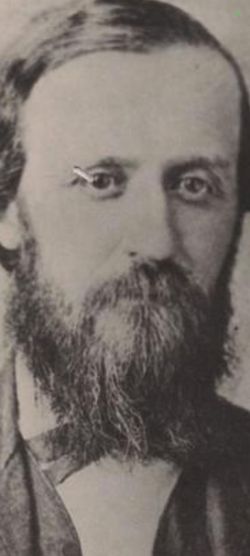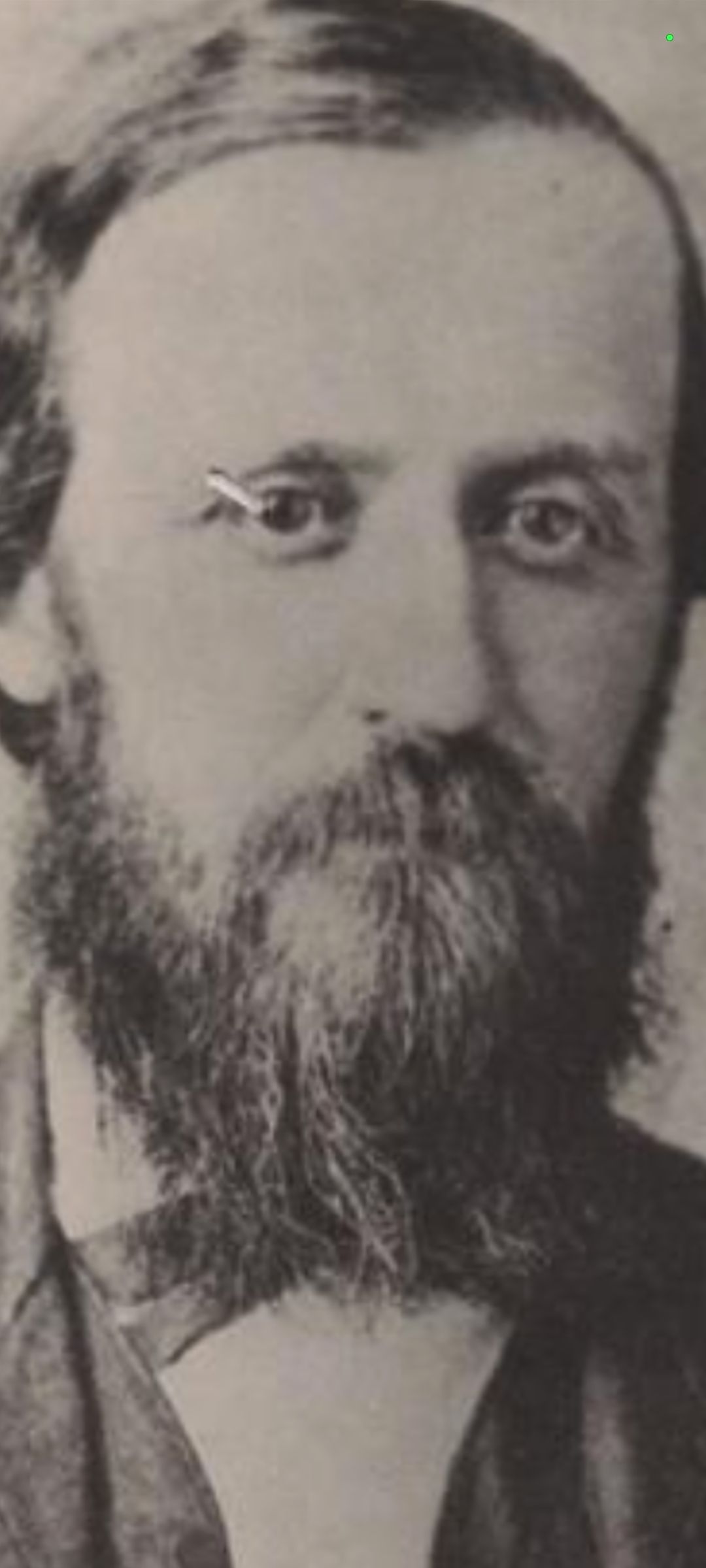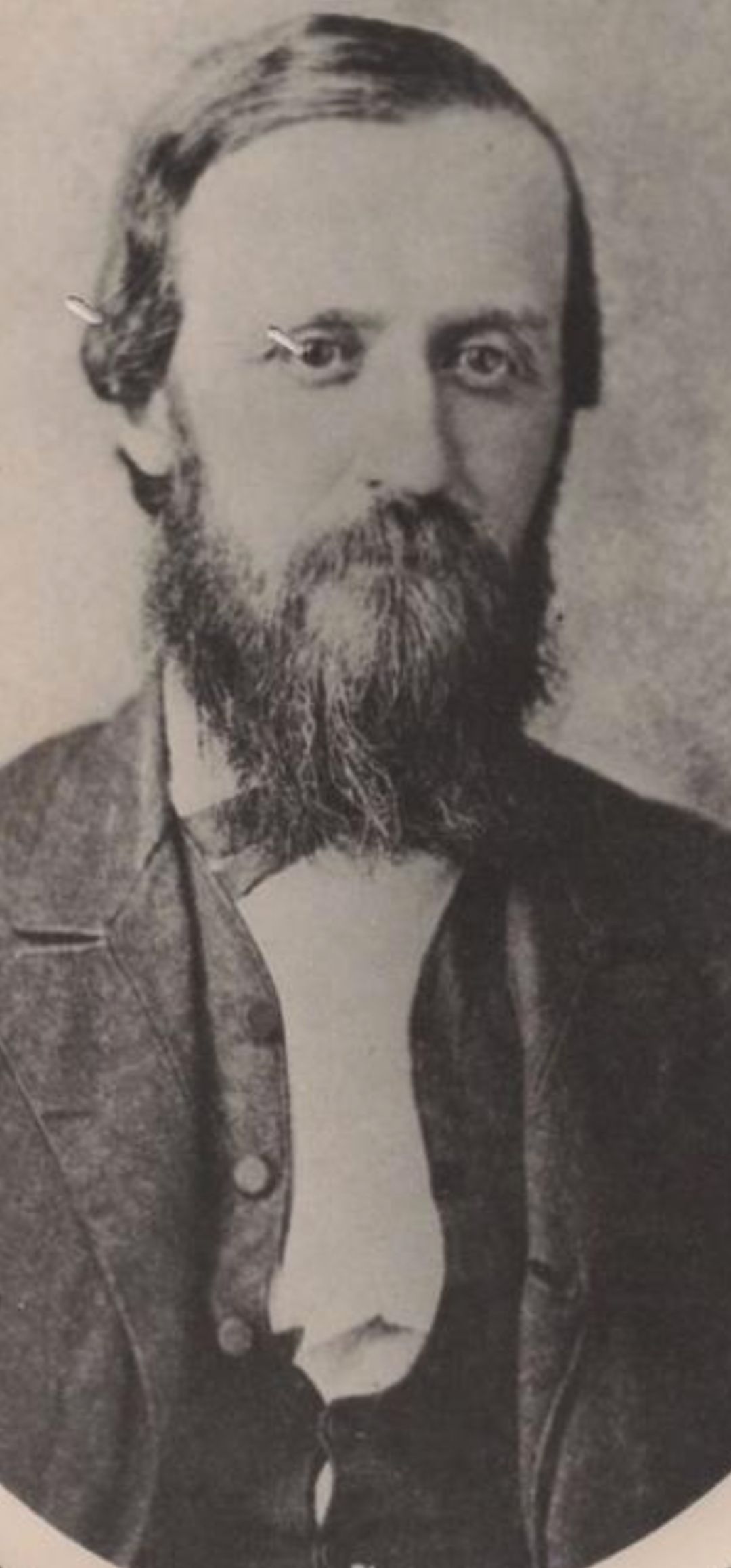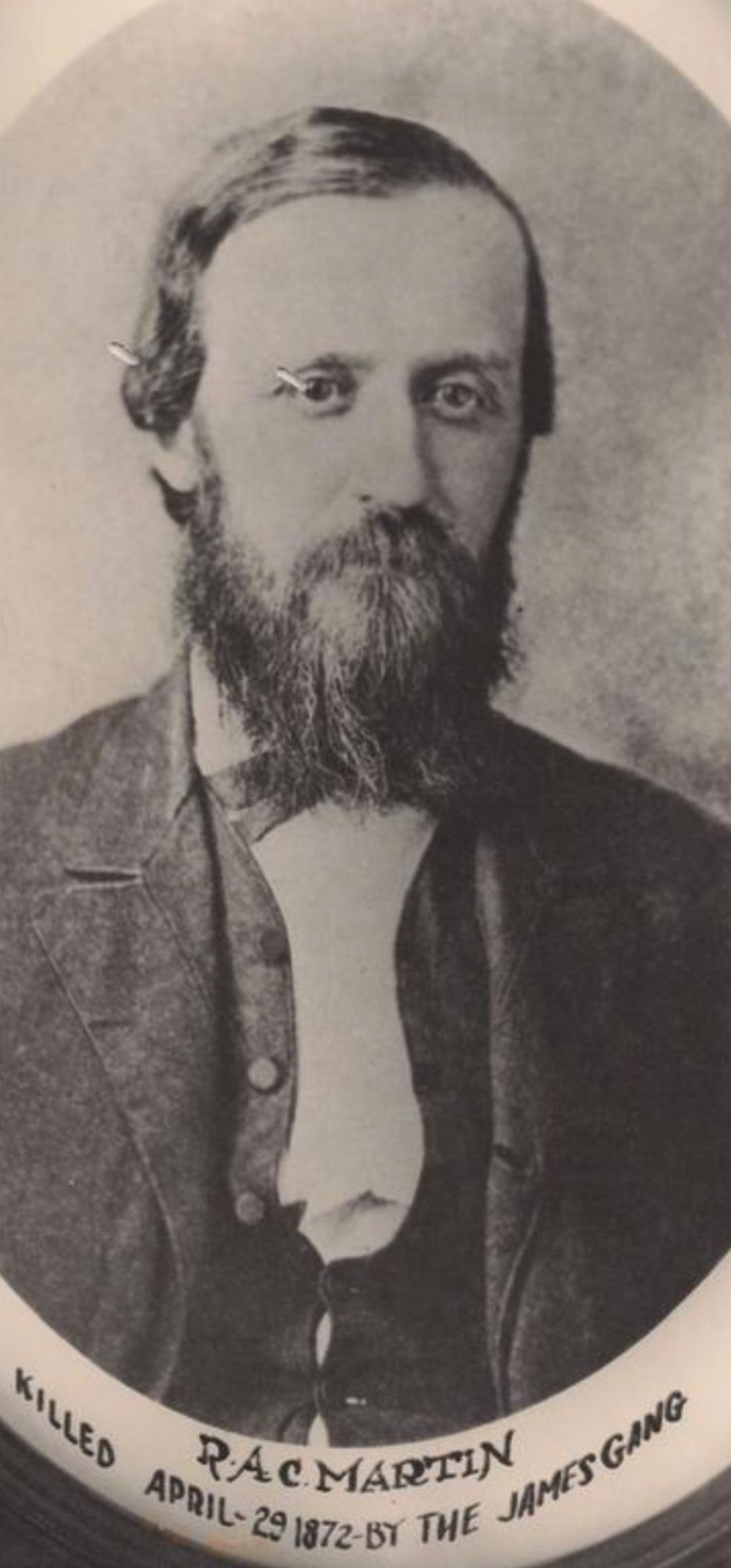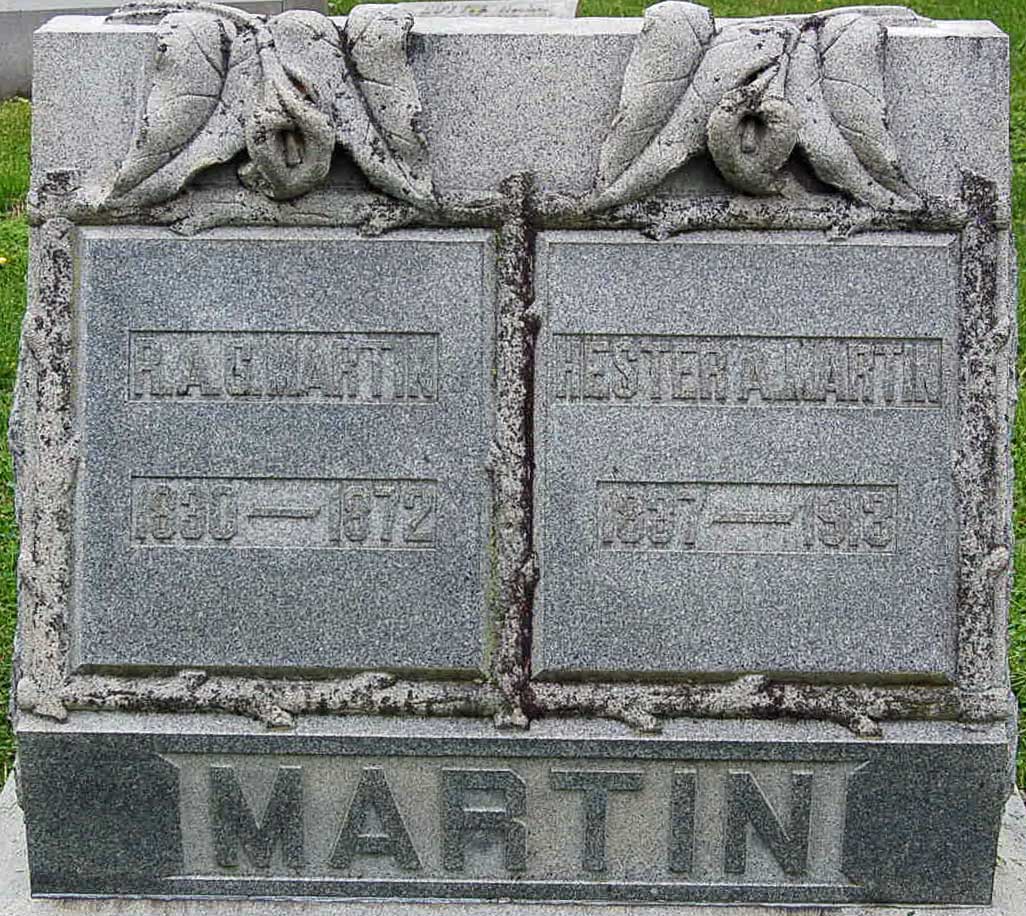Of Mr. Martin and his tragic death, Mr. Baker wrote (in part),
"Mr. Martin came to this place from Shelbyville at the organization of the Bank of Columbia [in 1866], and was placed in charge of its business as its cashier. He very soon won the esteem of all who had business with the bank. He was an excellent business man; kind and gentlemanly in his bearing with all whom he came in contact...
"Without warning and at his post of duty he was suddenly shot down, and his home was made desolate. At noon on the 29th of April, 1872, he was seated at his mid-day meal with his wife--happy in her love and in the prospects of a prosperous future which seemed to await him. An hour later the assassins had done their bloody work and his faithful wife, crushed and brokenhearted, was weeping over his lifeless body. That night, with the tolling of the bells and with the sincere sorrow of the community, the hearse drove out of town carrying his remains for interment at his old home in Shelby county.
"Looking back to-day through the long years that have intervened, the deed of that bloody afternoon has lost none of its enormity. Time has not softened any of its features, and the fact that it was done in open day makes it none the less a crime. It was a cruel, cold-blooded murder, committed for gain. We have no patience with the false and sickly sentiment which would make heroes of its authors."
(In 1872, it was generally believed, as some today still believe. the men responsible for Mr. Martin's death were part of the James-Younger gang.)
-provided by Jim Garner
Of Mr. Martin and his tragic death, Mr. Baker wrote (in part),
"Mr. Martin came to this place from Shelbyville at the organization of the Bank of Columbia [in 1866], and was placed in charge of its business as its cashier. He very soon won the esteem of all who had business with the bank. He was an excellent business man; kind and gentlemanly in his bearing with all whom he came in contact...
"Without warning and at his post of duty he was suddenly shot down, and his home was made desolate. At noon on the 29th of April, 1872, he was seated at his mid-day meal with his wife--happy in her love and in the prospects of a prosperous future which seemed to await him. An hour later the assassins had done their bloody work and his faithful wife, crushed and brokenhearted, was weeping over his lifeless body. That night, with the tolling of the bells and with the sincere sorrow of the community, the hearse drove out of town carrying his remains for interment at his old home in Shelby county.
"Looking back to-day through the long years that have intervened, the deed of that bloody afternoon has lost none of its enormity. Time has not softened any of its features, and the fact that it was done in open day makes it none the less a crime. It was a cruel, cold-blooded murder, committed for gain. We have no patience with the false and sickly sentiment which would make heroes of its authors."
(In 1872, it was generally believed, as some today still believe. the men responsible for Mr. Martin's death were part of the James-Younger gang.)
-provided by Jim Garner
